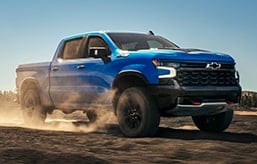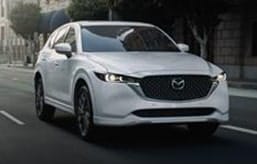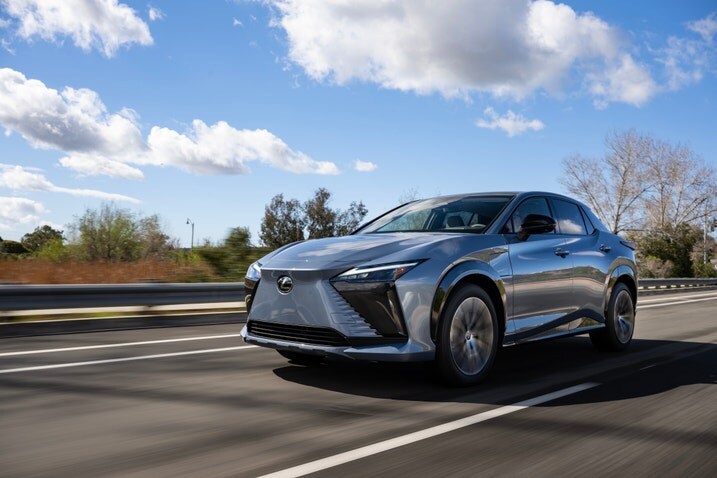- Even though other automakers got the EV jump on Lexus, it thinks the RZ is a strong opening salvo.
- The brand's approach has been conservative, but its timing might just work out.
- Lexus knows how big EVs will be and isn't sitting idly by.
Lexus Says EVs Are “A Huge Market” and Prepares to Take on Tesla with the RZ 450e
Lexus sees a lot of room to grow despite its slow start on EVs
Toyota’s luxury brand has been watching its competition carefully, and its first all-electric offering — the 2023 Lexus RZ 450e — aims to leapfrog the luxury EV segment. For the last decade, Lexus has averaged 300,000 vehicles sold in the United States alone. China is not far behind, and the demand for EVs is even higher there and abroad, where the European Union has effectively outlawed the sale of gas-powered cars after 2035.
Lexus is well aware of the competitive set it’s up against with the RZ 450e. On paper, it looks like the RZ is behind the curve: Audi delivered its first e-tron in 2019, as did Jaguar with its I-Pace. Tesla’s first year of the model Y was 2021. The closest to the launch of the RZ is Volvo’s C40 Recharge, which debuted for model year 2022. The Lexus team, however, is unperturbed about where it falls in the current timeline because of what it’s seeing through the windshield.
“What’s more important is what’s coming,” Lexus Product Marketing Manager Sakiko Aono told Edmunds. “In the luxury segment alone, there are close to 20 EVs in the competitive set launching in the next two to three years. This is a huge market.”
Will Toyota and Lexus ramp up their EV lineup now?
Toyota’s enthusiast-in-charge, Akio Toyoda, recently stepped down as CEO of the brand. He’ll be replaced by Koji Sato, who joined Toyota in 1992 and took the chief engineer job at Lexus in 2016 before ascending to the presidency of Lexus and then to global chief branding officer. The perception that Toyota has been reluctant to enter the EV push has been pervasive.
Toyoda himself actively encouraged a slow and measured electrified approach over an all-in-for-EV strategy, and he has indicated that the adoption of EVs will be slower than the masses think. He has taken a measure of criticism for that viewpoint, and some portray Toyota as late to the game despite its record of making high-quality hybrids for many years.
“I’ve never said [battery electric vehicles] are wrong,” he told the New York Times in January. “BEVs are an important option. However, they may not be the only option. That point just didn’t get across.”
Here’s the thing: Toyoda may not be off the mark, as the latest buzz has been focused on the EV charging infrastructure in the U.S. The Biden administration's multibillion-dollar funding is aimed at standardizing charging stations across the board, but it won't be ready overnight. As a result, the timing Lexus has laid out may be right on target.
Plus, the RZ is just the opening act. Toyota laid out its EV plans at the end of 2021, including a comprehensive Lexus lineup. A large SUV is in the works, presumably to replace the off-road-capable GX and LX. The Electrified Sport, which is an LFA-like super sports car, was also revealed. It’s possible that the U.S. market will also get an electrified sedan and a wagon, but those are more likely to be launched in Europe. Meanwhile, Lexus will continue developing its hybrid and hydrogen powertrains.
Lexus Reserve mitigates range anxiety
To create a competitive advantage, Lexus product manager Sakiko Aono told Edmunds that the brand is focused on making sure the dealerships are shored up. Secondly, Lexus Reserve is a new program that offers RZ buyers the opportunity to borrow another vehicle (gas-powered or hybrid) from the dealership if they need to go farther than the maximum 220 miles of range in the RZ.
Aono sees this as an ace in the hole for potential Lexus EV buyers. Instead of sweating the range, customers can just borrow a different car for a total of 30 days over three years. It's a complimentary program that's offered to buyers of the RZ and comes at no extra cost.
As Lexus works toward its goal to be all-electric by 2030, the brand sees the RZ as a strong first strike in the segment. With a $70 billion investment in electrification over the next several years, Lexus won’t be backing down anytime soon.
“Tesla has been the default,” Aono says. “It’s kind of like the iPhone; I’m used to it and I know how to use it. But stay tuned, Tesla. We’re going to be there too.”
Edmunds says
Lexus is still behind the curve, but hopefully its coming products get us as excited as the automaker is for its future products.





 by
by